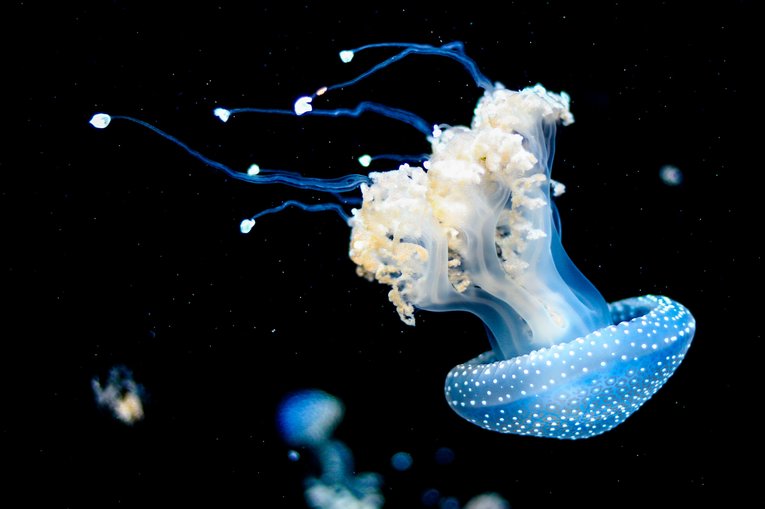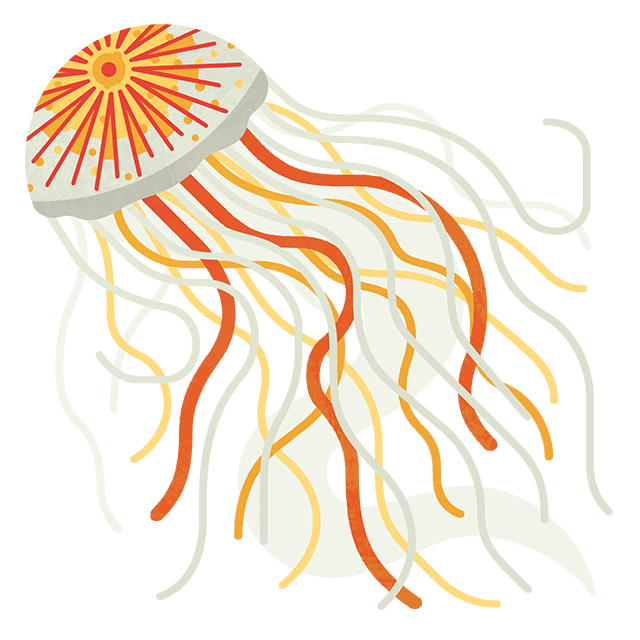
Jellyfish: Helping to keep our ocean full of life
Jellyfish are very important and beneficial to lots of marine creatures and help keep our seas full of life.
Before you continue!
Protecting other species
While drifting through the water, jellyfish offer shelter and protection for some species of baby fish, enabling them to hide from predators. The tiny fish seek cover under the jellies, swimming with them as they move with the currents, which gives them a hiding place and the chance to journey through the sea unharmed.
Maintaining ocean food chains
Jellyfish are an essential part of many food chains. By feeding on smaller creatures such as fish larvae and eggs, jellyfish help to control species’ populations and maintain the balance of the ocean’s ecosystem. As well as eating other animals, jellyfish are often prey themselves – even for other jellyfish! Lion’s Mane jellyfish feed on the smaller Moon species, which are often spotted entangled in Lion’s Manes’ tentacles.

Moon jellyfish are often prey for Lion's Mane jellyfish and other marine animals.
Credit: Florian Olivo
Jellyfish are also an important part of the diets of sunfish, spadefish, crabs, and other large crustaceans, as well as marine turtles. Leatherback turtles’ diets consist almost entirely of jellyfish (their favourite is the Lion’s Mane), and they come to UK waters specifically to feed on jellyfish blooms in the summer - so jellyfish are especially important to the survival of these animals.
Even after life, jellyfish continue to sustain marine species, with deep-sea creatures like hagfish feasting on jellyfish remains soon after they fall to the bottom of the ocean.
Helping nutrients reach other species
Nutrients released by jellyfish through feeding or excretion are also a great source for other organisms, with a study finding that over 10% of nitrogen and almost a quarter of the phosphate requirements needed for the growth of phytoplankton were fulfilled through jellyfish excretion.
Help recording jellyfish as a bioindicator species
Jellyfish are an essential part of our delicate underwater ecosystem and provide a whole host of benefits to other marine life. Read our report on jellyfish sightings to discover the number and species of jellyfish that have been seen around our coasts each year.
We use scientific data, collected like this, to campaign for real change in the way we manage and protect our seas. If you see a jellyfish, dont forget to record it for us!









